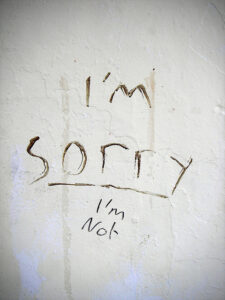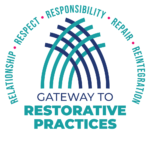
You’ve probably witnessed a forced apology. Parents tire of siblings arguing and don’t know what to do. Often they resort to apologies. The frustrated parent commands, “Tell your brother you’re sorry.”
“I’m sorry,” he replies in a clipped voice.
“Now, you apologize,” the parent nods towards the other child.
“I’m sorry,” the sibling replies grudgingly. He knows his brother isn’t truly sorry – and just maybe, he isn’t either. The same taunting will resume once the adult leaves the room.
Consequences of forced apologies
What many parents and educators don’t realize about forced apologies is that, “… insincere apologies may actually cause more harm than they repair.” 1 There are four reasons this acceptable social norm doesn’t work when forced.
First, the apology feels hollow to the recipient.
The recipient witnesses the entire interaction. It doesn’t take much experience with forced apologies to know a sibling or classmate doesn’t really mean it.
Second, forced apologies can trigger resentment.
Anger rises between the students or siblings. Sometimes there’s resentment towards the authority demanding the apology. Adults often think that after kids apologize, the conflict is resolved. However, what is seen as resolving the conflict often intensifies it.
Third, repeated apologizes with no change are ineffective.
The peers or siblings have apologized so many times, it becomes rote. The apologies are empty because behaviors over and over again don’t change.
Fourth, apologies with words are meaningless unless combined with actions.
We want to believe people when they apologize. But time tells the real story. Does the student attempt to change behavior? Does the sibling demonstrate evidence that things will be different? Children won’t automatically change their behavior without support and accountability.
Only then will saying, “I’m sorry,” restore relationships at school and home.
Sources:
- The Restorative Practices Handbook: for Teachers, Disciplinarians and Administrators. Bob Costello, John Wachtel, & Ted Wachtel. International Institute for Restorative Practices, 2009, p. 58
- Image: Sorry 235731069_efb6bf1f97_z [flickr.com]

